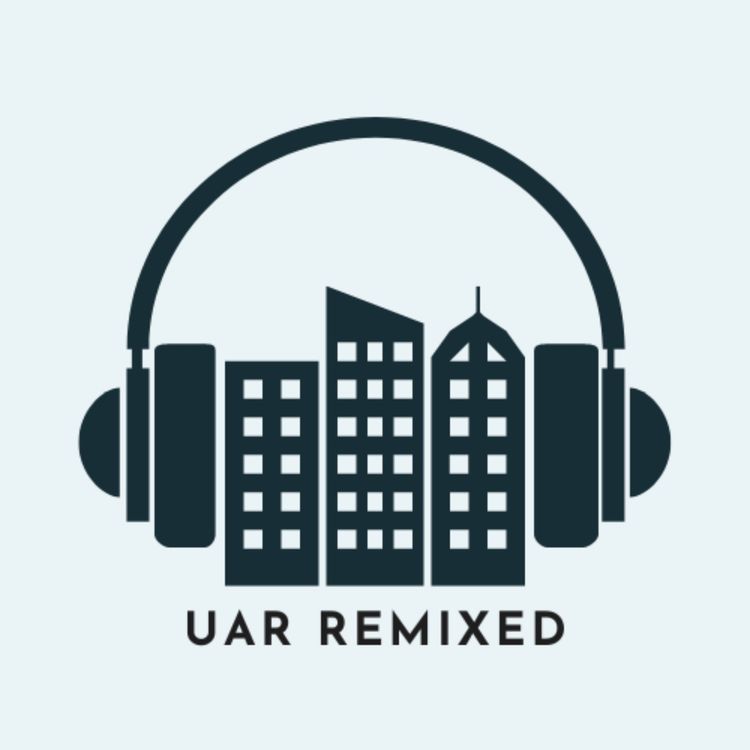Share

UAR Remixed
Political Lessons from American Cities: Houston
This special series, “Political Lessons from American Cities,” is presented courtesy of Temple University Press. In this episode, you'll hear from Els de Graauw (Baruch College/CUNY Graduate Center) and Shannon Gleeson (Cornell University) about their book, "Advancing Immigrant Rights in Houston."
Houston is one of the most diverse cities in the United States and has long been a prime destination for international migrants from Latin America, Asia, and more recently, Africa. However, the city is politically mixed, organizationally underserved, and situated in a relatively anti-immigrant state. This makes Houston a challenging context for immigrant rights despite its rapidly diversifying population.
Els de Graauw and Shannon Gleeson recount how local and multi-level contexts shape the creation, contestation, and implementation of immigrant rights policies and practices in the city. They examine the development of a city immigrant affairs office, interactions between local law enforcement and federal immigration enforcement officials, local public-private partnerships around federal immigration benefits, and collaborations between labor, immigrant rights, faith, and business leaders to combat wage theft.
The case study of Houston provides a bellwether for how other U.S. cities will deal with their growing immigrant populations and underscores the importance of public-private collaborations to advance immigrant rights.
Temple Press is publishing six titles in their series, “Political Lessons from American Cities,” which is edited by Richardson Dilworth, UAR Managing Editor and Professor of Politics at Drexel University.
More episodes
View all episodes

1. Trailer COMING SOON
03:08||Season 1, Ep. 1COMING SOON! In this four-part series on cities and technology, we speak with six scholars about their research and perspectives on the role of technology in urban politics and culture. Stay tuned for the first episode, coming SEPTEMBER 5th.Music by Blue Dot Sessions
1. What We Talk About When We Talk About Technology
31:38||Season 1, Ep. 1In this first installment of a four-part series, we spoke with six scholars about how they think about technology in relation to the city and the urban. We drill into the etymology and anthropological implications of how technology really operates in our daily lives, and preview some of our discussions in the series. We could have created an entire show focused on this topic! But instead, we’re taking a wide-angled and ecumenical approach to general topics in urban studies. We hope to expose scholars, students, and practitioners of urban studies to diverse research methods and approaches to these themes. Visit our website for a full reading list.Guests: David Banks, SUNY, University at Albany Ryan Burns, University of Calgary Ayonna Datta, University College London Shannon Mattern, University of Pennsylvania Erin McElroy, University of Washington John Stehlin, University of North Carolina at Greensboro Credits: Many thanks to the Lindy Institute for Urban Innovation at Drexel University, the managing editors at Urban Affairs Review, and our guests for sharing their time and insights with us. The show’s music is “Hundred Mile” by K2, courtesy of Blue Dot Sessions. Producer and sound engineer: David Weems, Drexel University Executive Producer and writer: Emily Holloway, Associate Managing Editor, Urban Affairs Review.
2. How smart is the Smart City?
45:28||Season 1, Ep. 2In part two of this four-part series on cities and technology, we turned our attention to smart cities. This concept gained some traction over the last decade as a technocratic solution to urban problems. Through the use of open data, widespread surveillance systems, and various digital data-generating tools, the smart city promised an apolitical suite of practices that could improve and optimize city governance and life. But as we learned in Part One, nothing about technology is politically neutral. We speak with four different scholars on their work in the smart cities arena and how it intersects with postcolonial critique, economic development, and the politics of open data. Visit our website for more information and a reading list.GUESTS David Banks, SUNY, University at Albany Ryan Burns, University of Calgary Ayonna Datta, University College London Shannon Mattern, University of Pennsylvania Erin McElroy, University of Washington John Stehlin, University of North Carolina at Greensboro CREDITS Many thanks to the Lindy Institute for Urban Innovation at Drexel University, the managing editors at Urban Affairs Review, and our guests for sharing their time and insights with us. The show’s music is “Hundred Mile” by K2, courtesy of Blue Dot Sessions. Producer and sound engineer: David Weems, Drexel University Executive Producer and writer: Emily Holloway, Associate Managing Editor, Urban Affairs Review.
3. Urban platforms: Uploading the city
37:57||Season 1, Ep. 3Part three of our four-part series on cities and technology attempts to grapple with the urban platform, platform urbanism, and the messy consequences of implementing these approaches in cities. Is a city like a platform, or is it a platform? What kinds of data do urban platforms need to operate, and what kinds of subjects do those data make? This episode features excerpts from all six scholars in the series who untangle these threads and challenge the assumptions of tech-driven policies. GUESTS David Banks, SUNY, University at Albany Ryan Burns, University of Calgary Ayonna Datta, University College London Shannon Mattern, University of Pennsylvania Erin McElroy, University of Washington John Stehlin, University of North Carolina at Greensboro CREDITS Many thanks to the Lindy Institute for Urban Innovation at Drexel University, the managing editors at Urban Affairs Review, and our guests for sharing their time and insights with us. The show’s music is “Hundred Mile” by K2, courtesy of Blue Dot Sessions. Producer and sound engineer: David Weems, Drexel University Executive Producer and writer: Emily Holloway, Associate Managing Editor, Urban Affairs Review
4. Analog alternatives to the urban platform
36:05||Season 1, Ep. 4In our final installment of this four-part cities on cities and technology, we wrap up our conversations on smart cities, urban platforms, knowledge production, and civic intelligence by exploring alternative approaches to urban transformation – analog and digital. Tune in to learn more about the Anti-Eviction Mapping Project, the changing geography of carbon economies, and what post offices and hardware stores can teach us about community. GUESTS David Banks, SUNY, University at Albany Ryan Burns, University of Calgary Ayonna Datta, University College London Shannon Mattern, University of Pennsylvania Erin McElroy, University of Washington John Stehlin, University of North Carolina at Greensboro
1. Mobile Borders and Urban Landscapes
33:47||Season 2, Ep. 1In this four-part miniseries, we spoke with six scholars whose research addresses different aspects, geographies, and approaches to analyzing and understanding the relationship between migration and urban politics and culture. After introducing our guests for the series, this episode works through the concept of the border as a mobile entity that carries very real and concrete implications. We could have created an entire show focused on this topic! But instead, we’re taking a wide-angled and ecumenical approach to general topics in urban studies. We hope to expose scholars, students, and practitioners of urban studies to diverse research methods and approaches to these themes. Each episode will be accompanied by a suggested reading list based on our discussions, and we welcome suggestions for future guests and topics!GuestsAndrew Baldwin, Durham UniversityDeirdre Conlon, University of LeedsLeslie Gross-Wyrtzen, Yale UniversityNancy Hiemstra, Stony Brook University (SUNY)David Kaufmann, ETH ZürichDomenic Vitiello, University of Pennsylvania
2. Intimate entanglements: Race, migration, and urban space
24:57||Season 2, Ep. 2In this four-part miniseries, we spoke with six scholars whose research addresses different aspects, geographies, and approaches to analyzing and understanding the relationship between migration and urban politics and culture. This episode delves into recent debates in critical geography that explore the relationships between racism, migration, borders, and labor.We could have created an entire show focused on this topic! But instead, we’re taking a wide-angled and ecumenical approach to general topics in urban studies. We hope to expose scholars, students, and practitioners of urban studies to diverse research methods and approaches to these themes. Each episode will be accompanied by a suggested reading list based on our discussions, and we welcome suggestions for future guests and topics!GUESTSAndrew Baldwin, Durham UniversityDeirdre Conlon, University of LeedsLeslie Gross-Wyrtzen, Yale UniversityNancy Hiemstra, Stony Brook University (SUNY)David Kaufmann, ETH ZürichDomenic Vitiello, University of Pennsylvania
3. The Politics and Experience of Sanctuary Cities
48:08||Season 2, Ep. 3In this four-part miniseries, we spoke with six scholars whose research addresses different aspects, geographies, and approaches to analyzing and understanding the relationship between migration and urban politics and culture. In this episode, we take a multidisciplinary look at the sanctuary city with political scientist David Kaufmann and historian Domenic Vitiello, and examine the fraught concept of climate migration with Andrew Baldwin.We could have created an entire show focused on this topic! But instead, we’re taking a wide-angled and ecumenical approach to general topics in urban studies. We hope to expose scholars, students, and practitioners of urban studies to diverse research methods and approaches to these themes. Each episode will be accompanied by a suggested reading list based on our discussions, and we welcome suggestions for future guests and topics!GUESTSAndrew Baldwin, Durham UniversityDeirdre Conlon, University of LeedsLeslie Gross-Wyrtzen, Yale UniversityNancy Hiemstra, Stony Brook University (SUNY)David Kaufmann, ETH ZürichDomenic Vitiello, University of Pennsylvania
4. How Migration Makes a City
27:16||Season 2, Ep. 4In this four-part miniseries, we spoke with six scholars whose research addresses different aspects, geographies, and approaches to analyzing and understanding the relationship between migration and urban politics and culture. In this episode, we’ll hear from collaborators Deirdre Conlon and Nancy Hiemstra about their decade-long project on detention economies; Leslie Gross-Wrytzen on how migration has shaped Moroccan cities; David Kaufmann on the important but fraught role of NGOs; and Andrew Baldwin raises some important and understudied questions on the relationship between urban climate migration and property.We could have created an entire show focused on this topic! But instead, we’re taking a wide-angled and ecumenical approach to general topics in urban studies. We hope to expose scholars, students, and practitioners of urban studies to diverse research methods and approaches to these themes. Each episode will be accompanied by a suggested reading list based on our discussions, and we welcome suggestions for future guests and topics!GUESTSAndrew Baldwin, Durham UniversityDeirdre Conlon, University of LeedsLeslie Gross-Wyrtzen, Yale UniversityNancy Hiemstra, Stony Brook University (SUNY)David Kaufmann, ETH ZürichDomenic Vitiello, University of Pennsylvania